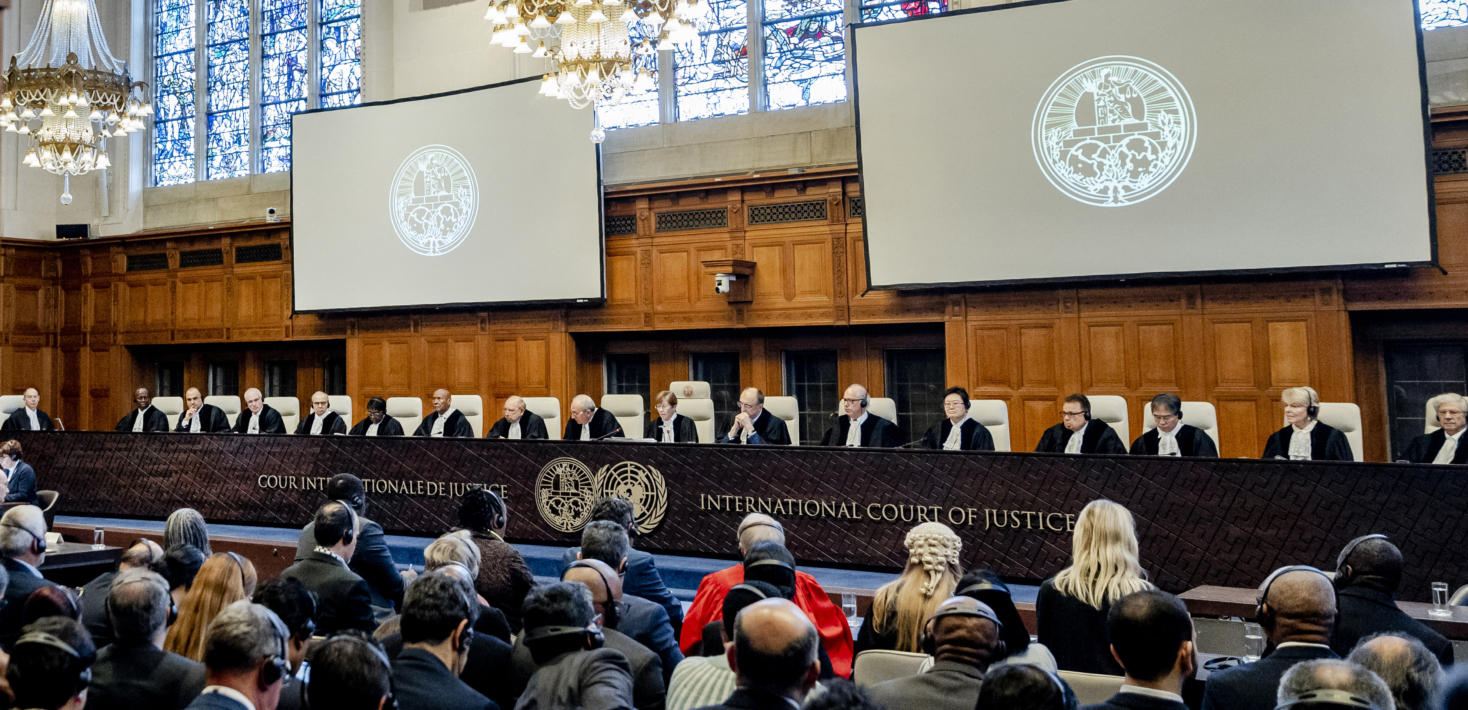On January 26th, the International Court of Justice (ICJ) asserted that Palestinians have the right to be protected from acts of genocide, urging Israel to “take all measures within its power” to prevent such actions and to permit the much-needed entry of humanitarian aid into the enclave devastated by war.
In the verdict, 15 out of the 17 judges on the ICJ supported emergency measures that encompassed the majority of South Africa’s requests, with the notable exception of ordering a halt to Israeli military action in Gaza. Opting not to reiterate the interim measures it had imposed on Russia, which were disregarded by Moscow.
However, there was no explicit call for an immediate halt to Israel’s full-scale military operation in the Strip, which is believed to have leftover 26,000 dead, according to the Gaza health authorities.
COURT RULING
Judge Donoghue, mentioned court remained “deeply concerned about the continuing loss of life and human suffering.” Further, highlights that the ICJ was “acutely aware of the extent of the human tragedy unfolding in the region” since the war erupted in Gaza.
Additionally, ICJ President Joan Donoghue has called for the release of all remaining hostages taken from Israel during the attacks led by Hamas on Israeli communities, during which approximately 1,200 people were massacred on October 7th.
Israel had wanted the apex court to take the view that “the appropriate legal framework for the conflict in Gaza is that of international humanitarian law (IHL) and not the Genocide Convention.”
Adopted by the international community in 1948 following the Holocaust and World War II, the Genocide Convention prohibits the eradication, either wholly or partially, of a national, ethnic, racial, or religious group through actions such as killing, physical or mental harm, prevention of births, or “deliberately inflicting on the group conditions of life calculated to bring about its physical destruction in whole or in part.”
Israel “argues that, in situations of urban warfare, civilian casualties may be an unintended consequence of lawful use of force against military objects, and do not constitute genocidal acts.”
Furthermore, breaches of International Humanitarian Law (IHL) would not have provided South Africa with the legal standing to approach the ICJ in a manner comparable to violations of the Genocide Convention.
In the most adverse situation for Israel, serious violations of IHL might potentially lead to prosecutions at the International Criminal Court. However, ongoing operations by the Israeli Defense Force (IDF) in Gaza would remain unaffected.
During this month’s arguments, Israel had insisted that the ICJ lacked jurisdiction in the case. However, in the ruling, Judge Donoghue, the president of the ICJ, stated that the court had determined its authority to adjudicate on the matter, explicitly allowing it to issue provisional measures.
Elaborating on this point, the ICJ judge pointed out that both South Africa and Israel, as states parties to the Genocide Convention, had willingly committed to “prevent and to punish the crime of genocide.”
Referencing Article II of the significant international treaty established in the aftermath of World War II, Judge Donoghue clarified that genocide is defined as “acts carried out with the intent to destroy, either wholly or partially, a national, ethnic, racial, or religious group.”
She noted that, from the court’s perspective, the Palestinian population of two million did indeed qualify as a distinct group.
Shifting the focus to Article III of the Genocide Convention, which prohibits “conspiracy to commit genocide” and public incitement to commit genocide, the judge pointed out that the ICJ had taken note of a number of statements made by senior Israeli officials.
These included comments by Yoav Galant, Defense Minister of Israel, who allegedly told troops stationed on the border with the enclave that they were fighting “human animals” who were the “ISIS of Gaza.”
Furthermore, the court has mandated that Israel must report within one month detailing its actions to comply with the directive to use all available means to prevent acts of genocide in Gaza. Judge Donoghue emphasized that this decision imposes international legal responsibilities on Israel.

